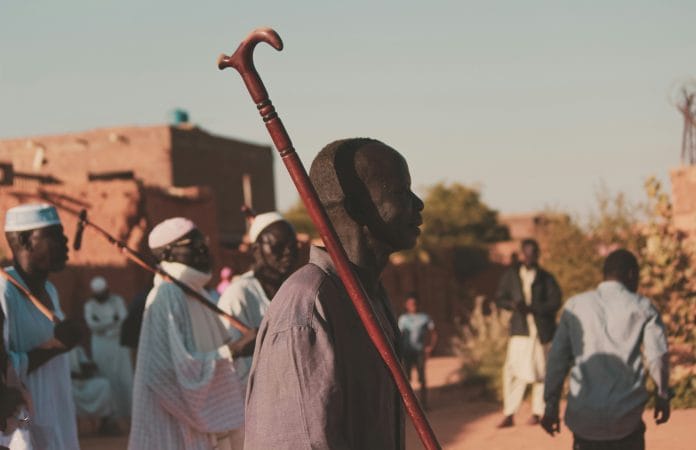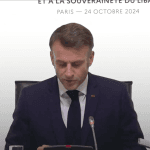The determination of the Sudanese Armed Forces (SAF) to crush all resistance to its imposition of hegemony over all of Sudan, which has already led to its use of chemical weapons and indiscriminate bombings against civilians, is now also driving the country into a full-scale public health disaster.
For the second year running, the International Rescue Committee (IRC) has placed Sudan at the top of its Emergency Watchlist—and amazingly, the world is still watching as the country’s collapse accelerates amidst a brutal civil war that is having a devastating impact on civilians.
Two years of war have displaced over 12 million people and left 30.4 million people – more than half of Sudan’s population – in need of humanitarian support. Now, on top of SAF airstrikes on civilians, and confirmation by the U.S. State Department that the SAF has used chemical weapons, the crisis is being exacerbated by a cholera epidemic.
Khartoum State is facing a major cholera outbreak, with over 7,000 cases reported in May – an increase of almost 400 percent compared to April 2025. Médecins Sans Frontières (MSF) treated more than 3,300 suspected cases between May 24-30, across several overwhelmed cholera treatment centers in Khartoum. In the last two weeks, at least 97 people have died in the facilities supported by MSF in the city. A cholera hotspot has also been identified in Nyala in South Darfur, where MSF has treated 92 suspected cases between May 25-30. New cases are rising, with patients arriving from across the city and surrounding displacement camps.
“In areas south of the Nile in Omdurman, there are a lot of corpses rotting next to [or in] the Nile, and this has partially caused the spread of infection,” said Badawi, a volunteer in Omdurman, one of the three cities that form Sudan’s capital. Dr Dirar Abeer, a member of Khartoum’s Emergency Response Rooms, the neighborhood committees spearheading relief efforts across the country, explained that the SAF-backed health authorities are not doing enough to tackle the epidemic.
This week, Human Rights Watch (HRW) condemned indiscriminate strikes against civilians in Sudan, saying they added to a record of war crimes by the SAF. According to HRW, the SAF killed scores of civilians in attacks that used unguided air-dropped bombs on residential and commercial neighborhoods in Nyala, South Darfur in early February. These attacks were described as indiscriminate because the bombs used have wide-area effects with limited accuracy and cannot, under most conditions, be directed at a specific military target in populated areas. As emphasized by HRW, deliberately or recklessly conducting indiscriminate attacks is a war crime. HRW demanded that the SAF immediately end all indiscriminate attacks and said that other countries should sanction Sudan’s air force leadership for such attacks.
HRW researchers conducted detailed investigations into five airstrikes on February 3, which was particularly deadly for civilians. They interviewed 11 victims and witnesses and three medical staff who treated victims, and analyzed satellite imagery, photographs and videos from social media and witnesses, including of munition remnants from three of the strikes. The February 3 strikes hit busy residential and commercial areas in the central Al-Jumhuriya and Al-Cinema neighborhoods in quick succession, as well as Congo Road, a major road in the city, witnesses said. Doctors Without Borders (MSF) reported that 32 people were killed and dozens were injured. A strike that hit a grocery store near the Mecca Eye Hospital on a street filled with people and vehicles, was particularly deadly, witnesses said.
These deteriorating conditions for civilians in Sudan follow a decision by the U.S. Department of State to impose sanctions on the SAF, effective in early June, for their use of chemical weapons. The New York Times reported in January that the SAF used chlorine gas on two occasions, which causes a range of painful and damaging effects and can be fatal. “The United States calls on the government of Sudan to cease all chemical weapons use and uphold its obligations under the CWC,” the US Department of State’s statement read, referring to the Chemical Weapons Convention under which signatories have committed to destroy their stockpiles of the weapons.
There can be no doubt that the use of chemical weapons, indiscriminate bombing of civilians and the cholera outbreak are deepening what was already a catastrophe. “Sudan is on the brink of a full-scale public health disaster,” said IRC Sudan country director, Eatizaz Yousif. “The combination of conflict, displacement, destroyed critical infrastructure and limited access to clean water is fueling the resurgence of cholera and other deadly diseases.” A permanent ceasefire and determined international action seem the only hope to ease the immense suffering.








